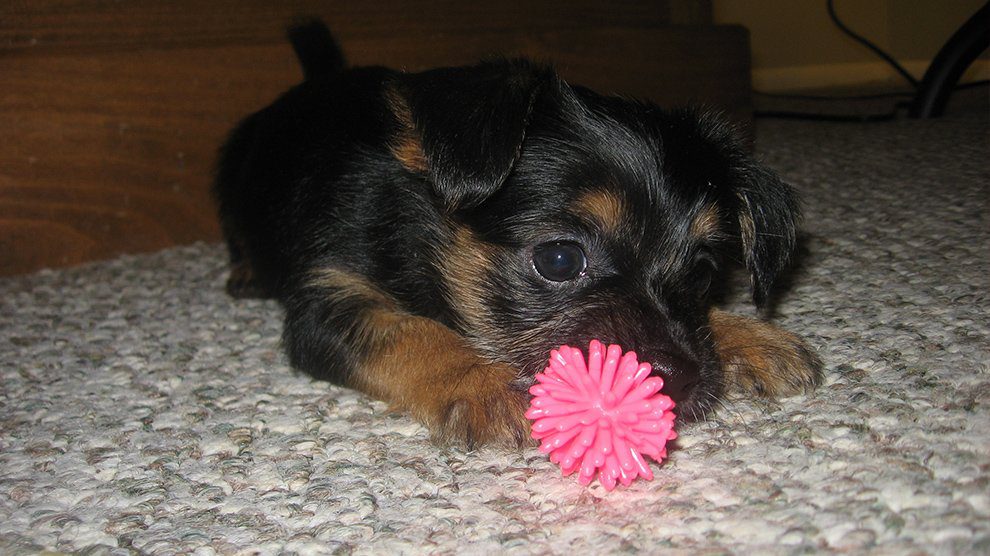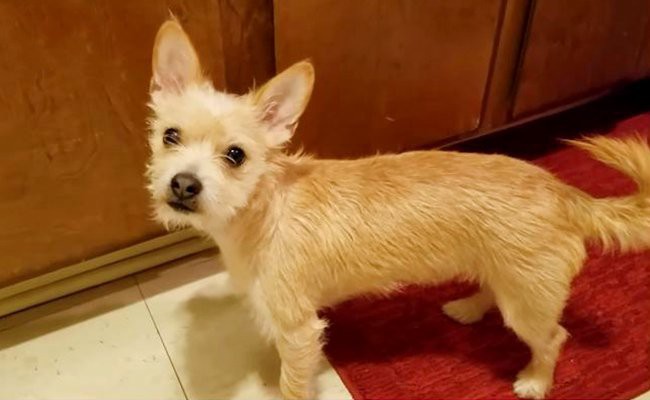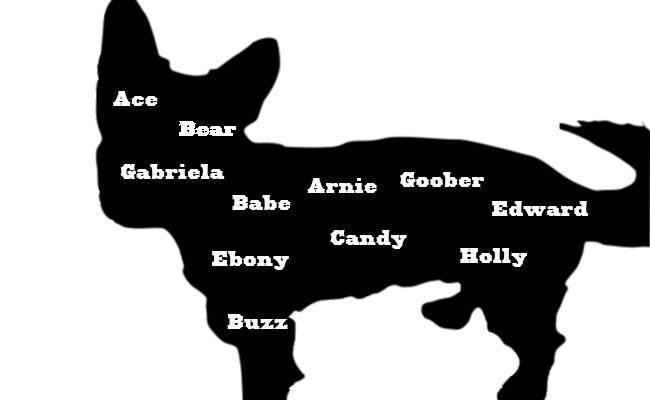Dog Pregnancy Calculator And Timeline
Did you know that the Chorkie, a crossbreed dog born from the mix of Yorkshire Terrier and Chihuahua dogs had existed two decades back? What’s peculiar to note is that the name of the initial breeder who created the Chorkie after mixing a Yorkshire and a Chihuahua is not known.
Chorkie is also recognized by the American Hybrid Canine Club. Like its parents, Chorkie is also a good companion by the households in the USA, by those who own it.
Chorkie Facts
Chorkie Appearance/Coat Colors
Normally the Chorkies appear in various coat colors like white brown, black, blue, tan and also grey. The length of a Chorkie’s coat may be medium or lengthy based on its Chihuahua parent.
As a matter of fact, a chorkie dog’s appearance is based on the genetic setting of its purebred parents. Usually, the Chorkie dogs have a rounded head like their Chihuahua parent and also big attractive eyes which look like their Yorkie parent.
These dogs have long or short ears which can be either droopy or erect. Similarly, the Chorkie dogs have long or short hairs and it is based on its parents. Likewise, these dogs may have short or long legs. This dog breed has a short muzzle.
Chorkie Size / Lifespan
The average height of a Chorkie dog is 6 to 9 inches (15-23 cm). Normally, the weight of this dog is between 5 to 9 pounds (2-4 kg). Chorkie pups survive up to an age of between 10 years to 15 years.
Most of all, it must not be forgotten that good health and living conditions can make the Chorkie survive for a couple of more years.
Barking Habit
Loud barker that often alerts its owner if it finds something suspicious is happening around.
Chorkie Training
During the initial stage of training, it is indeed difficult to train this breed. However, an intelligent and consistently firm trainer will be able to overcome this problem within a very short time. The important things for a trainer to take note of :
Mostly, the dog wishes to stay indoors (inside the house) and so potty training is very important and must be taught very early.
Secondly, since these dogs adopt an aggressive attitude towards strangers, socialization training must be started at a very early age.
To sum up, positive and encouraging methods of training will go well with these dogs.
Chorkie Temperament
Chorkies possess the following qualities:
- Affectionate – Chorkie dogs always remain affectionate to the owner
- Smart – Chorkies are smart like its parents and it knows well to react to situations and also in- line with the thoughts of the owner
- Alert – These dogs always stay vigilant and will never let a stranger go u
- Happy – The Chorkie is a happy puppy and loves to remain and also make others stay cheerful
- Friendly – The dog is quite friendly with all, a characteristic that is inherited from its Chihuahua parent
- Entertaining – It can be guaranteed that once this dog is around, the people in that environment will never feel bored
- Playful – Usually, these dogs are playful and they love to play with kids
- Loyalty – Loyalty is a major highlight of this dog and it never fails to show this trait, whenever such occasion arises.
Chorkie Foods
Foods that a Chorkie eats
- Chicken (cooked)
- Fish
- Turkey
- Lamb
- Sweet Potatoes
- Pumpkin
- Peas
- Spinach green leaves
- Carrots
- Apples
- Oranges
- Bananas
- Cheese
- Yoghurt
- Almonds
- Peanut butter
Recommended “Do not Eat” Foods
- Coffee
- Chocolate
- Alcohol
- Avocadoes
- Grapes
- Raisins
- Dough
- Uncooked meat
- Raw eggs
- Onion
- Garlic
- Macadamia nuts
- Salty foods
Chorkie Health Problems
Notably, the Chorkie is a cross breed dog born from the mix of a purebred Chihuahua dog and purebred Yorkie dog.
Hence, the probability of similar diseases suffered by its parents could most probably attack the Chorkie.
Normally, a Chorkie suffers from health issues like:
1. Dental problems
A dog suffers from dental problems where the main area that is subject to damage is the gums. The gums in a dog’s teeth get affected by plaque due to the buildup of bacteria, the buildup of tartar and gingivitis (inflammation of the gums).
The stated conditions occur in a dog that is affected by periodontal disease.
Symptoms
- Changes in the eating habit of the dog
- Loss of Appetite
- Excess drooling at the mouth
- Feeling of pain in the dog is noticeable through its pawing, reluctance to play and lethargy
- Bad Breath
- Reddish layer on the gums
- Swelling
- Bleeding
Causes
- Genetics
- Poor nutrition
- Caused by bacteria like Actinomyces and Streptococcus
- Age
- Stress
- Smoking and tobacco use
- Tooth alignment
- Fluctuating hormones
- Medications
Treatment
In general, based on the stage of the disease, the veterinarian gives the needful treatment.
For dogs suffering in the first or second stage of periodontal disease
Professional dental cleaning will be undertaken below and above the gumline to remove the plaque that has formed. Ultrasonic scaling will be utilized to remove the tartar.
Polishing will be done to fill the crevices on the teeth to disallow plaque buildup and bacterial attachment.
For dogs in the third or fourth stage of the disease
People in this stage of disease will be subject to a dental x-ray and probing by the veterinarian. The vet will then only be able to notify the level of damage to the teeth. Thereafter, the nature of the treatment to be followed will be determined.
Since this is an advanced stage of disease, the needful surgery will be applied. There are four forms of surgery which could be applied like:
Root planing and subgingival curettage – A surgical procedure which involves the removal of tartar, diseased tissue and tooth and smoothens the root surface.
Gingivectomy – Surgical excision (removal) of affected gingiva. Gingiva refers to the gums
Periodontal surgery – A surgical procedure where the gums are opened and the tooth root is exposed for undergoing a deep professional cleaning and treatment.
Attachment and healing of the gums are done where the recommended drugs are sealants, bone growth stimulants and slow-release antibiotics.
Extraction – Teeth extraction is also done for dogs with loose or cracked teeth
2. Patellar Luxation
Symptoms
- Abnormal movement of the hindlimb that remains in the similar condition for a long time
- Rare skipping walk
- Sudden handicap
- Pain in the kneecap once it gets dislocated by falling out of the ridges of the thighbone
Causes
- Genetic disorder will cause a deformed kneecap
- Trauma or injury
Treatment
In general, based on the stage of the disease, the needful treatment will be given by a veterinarian. There is a multitude of options before a vet.
Medications like NSAID drugs – The purpose of giving non-steroidal and anti-inflammatory drugs is to lessen the pain and inflammation
Exercises to strengthen the quadriceps muscles
Weight control exercises
Other Treatments
Massage Therapy – To quicken the healing process and to lower stress
Hydrotherapy – Includes swimming and other water-related diseases
Acutherapy – Acupressure techniques
Supportive Care – Supplements
The four treatments under this section will
- Decrease the pain
- Enhance blood circulation,
- Quicken the healing process and
- To enhance comfort and wellness
- A variety of chondroprotective supplements which can range from glucosamine, chondroitin sulfate and hyaluronan
Surgical Treatment
The veterinarian will conduct a surgery for patella luxation for either of the following reasons:
- Reconstruction of the soft tissue surrounding the stifle to provide support to the patella
- To deepen the groove in the femur bone where the patella rests
3. Hip Dysplasia
Symptoms
- Difficulty in rising up or to stand up
- The pain felt in the hips while walking or running
- Gait walk
- Gradual degeneration of the hip joint wherein this can even make a dog completely handicapped
- Lameness in the hind limb
- Considerable loss of muscle (weight) in the thighs
- Expansion of the shoulder muscles of the dog because it applies high pressure on its front legs
Causes
- Hereditary factor that leads to the abnormal hip joint development
- Weight gain
- Malnutrition
- Obesity
- Lack of exercise or extreme exercising
- Pelvic muscle mass
Treatment
- Diet changes for controlling the excess body weight that causes stress to the hip joints
- Weight Loss exercises to lessen the strain on the joints
- Medications to reduce pain and inflammation and also to correct the damaged cartilage
- Physical Therapy
- Surgery – Mostly, the total hip replacement surgical method is done where an artificial hip is implanted after removing the actually affected hip.
The inconvenience and pain suffered earlier due to hip dysplasia will be eliminated through this artificial hip implant operation.
4. Progressive Retinal Atrophy
Symptoms
- Avoiding the usual habits of jumping on or off the furniture during the time of darkness
- Slow response of pupils to light
- Night blindness
- Slow response to critical situations
- Avoiding travelling outdoor in the night time
- An accidental collision on the furniture or walls in the house
- The greenish layer formed on the surface of the eye
- Cataract formation
- Falling over objects due to accidental slippage
- Unwilling to climb the staircase
Causes
Genetic disorder
Additionally, the autosomal gene that is present in a parent is responsible for transmitting the gene to the child thereby causing Progressive retinal atrophy (PRA)
Treatment
In particular, no treatment will give the desired results because PRA is an inherited disease. However, you can change the environmental settings in the house to facilitate the dog to lead a stress-free life with visionless (blind) eyes.
5. Hypoglycemia
Symptoms
- Laziness on the dog’s face
- Contraction of the muscles
- Shaking of the body
- “No hunger” feeling
- Ataxia
- Behavioural changes
- Blindness
- Collapse
Causes
- Stress
- Extreme hunger
- Cold extremities
- Exhaustion
- Stomach upset
Treatment
Based on the underlying cause, a veterinarian will give treatment to a dog that is affected by hypoglycemia. Likewise, the blood sugar levels in such affected dog will be tested.
Thereafter, some oral supplements or intravenous glucose supplements could be given by the vet to the dog.
6. Portosystemic (or) liver Shunt
Symptoms
- Depressed face
- Ataxia
- Heavy drooling from the mouth
- Vomiting
- Diarrhoea
- Constipation
- Lack of appetite
- Head pressing and shaking
- Abnormal change of voice
- Weakness
- Pacing
- Circled Walk
- Seizures
- Collapse
Causes
Two types of the liver shunt are there:
- Congenital (at the time of birth)
- Acquired shunt due to cirrhosis of the liver
The congenital shunt is more typically seen and hence it may be caused inside (intrahepatic) or outside (extrahepatic) of the liver. Both these conditions occur when the baby is developing inside the mother’s womb.
The base of the problem is the abnormal flow of blood. The blood flow is diverted in a vessel within the liver or in a liver that is outside of the liver.
Treatment
Usually, vets follow surgical treatment largely in curing the liver shunt disease. A veterinarian will find out the abnormal blood levels and involve in surgical closure. This will result in removing the shunt and restore normal blood flow to the liver.
However, the prior level of treatment i.e. medications is even followed for some dogs with the liver shunt disorder. Also, medications may include medical advice in the form of regulated protein diet-based intake for the affected dog.
This is essential to limit the production of toxic wastes like ammonia. Vets prescribe medications like diazepam to the dog to avoid seizures. In addition, they organize intravenous fluids to regulate the dog’s blood sugar.
7. Collapsing Trachea
Symptoms
- Avoids exercising
- Bluish patch or layer forms on the gums
- Breathing difficulty
- Regular coughs caused due to eating, drinking, excitement and also strenuous exercise
- Obesity
- Smoke or dust that irritates the trachea
- Hot and Humid weather
Causes
You cannot find a reason until a date to decipher the cause of the tracheal collapse. Alternatively, the only reason is a congenital disorder (defect at the time of birth due to genetic or hereditary problems).
To be more precise, a dog will be affected by tracheal collapse due to the problems in its cells.
Treatment
There are various methods of treatments available to treat an affected dog. Generally, for dogs with a severe case of tracheal collapse, surgery is the only way to treat this disease.
However, for dogs in the mild to moderate stage of this disease, a number of treatment options are available at the disposal of a veterinarian.
A veterinarian gives essential instructions for taking care of the affected dog through:
- Proper weight management
- Regulating its stress levels
- Fitting of the chest harness
- Giving limited exercises
- Taking the dog for a regular annual body health checkup
- Medications include antibiotics for treating tracheal collapse that occurs due to some infection. Doctors also prescribe cough suppressants and medicines to reduce the occurrence of spasms. They recommend sedatives also to help a dog relax from the anxiety that it suffers due to persistent coughing.
- Overall, surgery is the ultimate choice for a vet wherein he/she will refer to the necessary specialist for surgery after completely examining the body of the affected dog. Surgery is performed on the dog’s chest or the neck.
For the surgery on the chest, surgeons implant a spring-like device inside the trachea of the affected dog. In case of surgery on the neck of a tracheal collapse dog, surgeons remove the damaged cartilage and implant that with C-shaped rings.
Chorkie Price
Probably, the average purchase price of a Chorkie is $400 to $500 in the USA market. In the UK market, the price of a well-bred Chorkie dog can be in the range of £300 to £500.
As a rule-of-thumb, the price of a dog can vary based on various parameters:
- The age of the dog
- Nature of use of the dog i.e. show or pet dog
- Health
- Parents (Bloodlines)
- Quality of Breeder
- Experience of the Breeder
- Prices might vary from state to state
Chorkie Dog Names
| Chorkie Names Male | Chorkie Names Female |
|---|---|
| Ace | Ally |
| Arnie | Bear |
| Babe | Candy |
| Buzz | Daisy |
| Cadbury | Ebony |
| Dalton | Flower |
| Dixie | Gabriela |
| Edward | Holly |
| Foxy | Ivonne |
| Goober | Jade |
| Ham | Maggie |
| Jackson | Ophelia |
Chorkie Interesting Facts
- Certainly, chorkie’s place of origin is the United States of America and it is quite popular there
- There is still a rumour that keeps going on stating that the furry-faced taco brand fast food restaurant was a Chorkie
- Chorkies do not get tired easily because they are extremely energetic
- These dogs have a powerful vision and therefore they can spot things even from a very long distance
- In addition, Chorkie dogs are even afraid of strangers and some kinds of people and animals
- The Chorkie hails from the USA. It is a great family dog and also a good companion
- Of course, chorkie dogs do not need a lot of space and people living in urban areas will feel this dog as very suitable for them
- Since this dog breed is hypoallergenic and low shedding, people who are allergic to dog hair will also love to own it
Chorkie Breeders
Chorkie Breeders in the USA
- Wee Puppy Paws
Address: 20000 SW 304th Street
Homestead, FL 33030
Tel.: 305-206-6894
Email: Broderick_lynne@yahoo.com - Pups 2 Love
Address: Mansfield, Texas
Tel.: 817-449-5463
E-mail: pups2love@gmail.com - Little Puppies Online LLC
Address: Mount Vernon, Ohio
Tel.: 740-497-3333
E-mail id: sales@littlepuppiesonline.com























